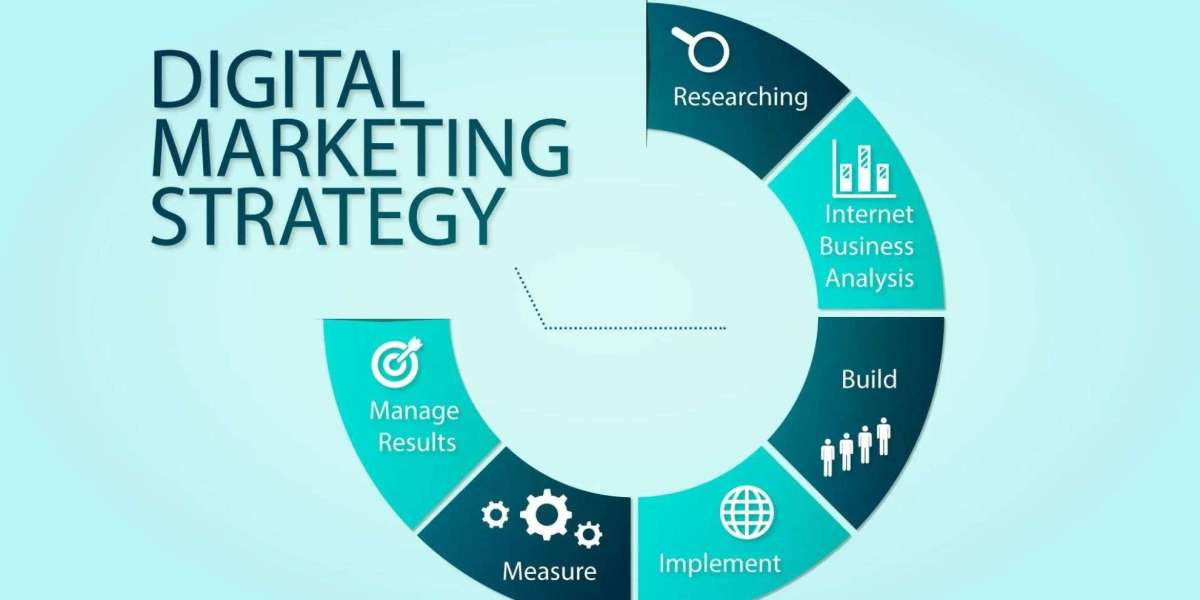In today’s fast-paced digital landscape, a well-executed digital marketing campaign can be the key to unlocking success for businesses of all sizes. Whether you’re launching a product, increasing brand awareness, or driving conversions, creating a solid digital marketing strategy is crucial. This article provides a step-by-step blueprint for crafting effective digital marketing campaigns that deliver measurable results.
1. Understand Your Target Audience
Before diving into tactics, it’s essential to have a deep understanding of your target audience. Who are they? What are their pain points? Where do they spend most of their time online? Building buyer personas can help you identify the characteristics, behaviors, and preferences of your ideal customers.
Key Questions:
- What are their needs, desires, and challenges?
- Which digital platforms do they frequent?
- What type of content do they engage with?
Tools & Resources:
- Google Analytics
- Facebook Audience Insights
- Surveys & Polls
2. Set Clear, Measurable Goals
Effective digital marketing campaigns are driven by well-defined goals. These objectives should be specific, measurable, achievable, relevant, and time-bound (SMART). Whether you're aiming for lead generation, brand awareness, or website traffic, setting clear goals helps guide the entire campaign.
Common Campaign Goals:
- Increase website traffic by 25% in 3 months
- Generate 100 leads from a specific landing page
- Increase social media engagement by 50%
- Achieve a 5% conversion rate from email marketing campaigns
3. Choose the Right Digital Channels
Digital marketing encompasses a variety of channels, each with its unique strengths. Selecting the right platforms is key to reaching your target audience where they are most active.
Common Channels to Consider:
- Social Media: Facebook, Instagram, LinkedIn, TikTok, etc.
- Search Engine Marketing (SEM): Google Ads, Bing Ads
- Content Marketing: Blogs, videos, podcasts, infographics
- Email Marketing
- Affiliate Marketing
- Influencer Marketing
Choosing the right mix of platforms will ensure that your message is delivered to the right people, at the right time, and in the right format.
4. Create High-Quality, Engaging Content
Content is at the heart of every successful digital marketing campaign. Whether it's blog posts, videos, social media posts, or email newsletters, the content must resonate with your audience and drive action. Great content educates, entertains, or solves a problem for the target audience.
Types of Content:
- Blog Posts: In-depth articles that provide value and information
- Videos: Short-form and long-form videos on YouTube, Instagram, TikTok
- Infographics: Visually appealing content that simplifies complex data
- E-books and Whitepapers: In-depth content that establishes authority
- Social Media Posts: Engaging, bite-sized content with visuals and calls-to-action
Make sure your content is optimized for each platform’s best practices. A post on Instagram may differ greatly from a blog post on your website.
5. Optimize for SEO and SEM
Search engine optimization (SEO) and search engine marketing (SEM) are critical to ensure your content ranks well on search engines, driving organic and paid traffic to your site.
SEO Tactics:
- Keyword Research: Use tools like Google Keyword Planner or SEMrush to find high-ranking keywords
- On-Page SEO: Ensure each page or blog post is optimized with keywords, meta descriptions, header tags, etc.
- Link Building: Build quality backlinks to increase your site's domain authority
- Mobile Optimization: Ensure your site is mobile-friendly, as most searches are conducted on mobile devices
SEM Strategies:
- Paid Ads: Use Google Ads or Bing Ads to target keywords relevant to your business
- Retargeting: Show ads to people who’ve previously visited your website but didn’t convert
6. Leverage Data and Analytics
Data-driven decisions are the foundation of any successful digital marketing campaign. Analytics tools like Google Analytics, HubSpot, and social media insights allow you to track performance and adjust strategies in real-time.
Key Metrics to Track:
- Traffic Sources: Where is your traffic coming from (search, social, direct)?
- Engagement Metrics: How are users interacting with your content (likes, shares, comments)?
- Conversion Rates: Are users completing the desired actions (sign-ups, purchases)?
- Bounce Rate: Are visitors leaving your website without engaging?
Constantly analyze your campaign’s performance and tweak your strategies to optimize results.
7. A/B Testing and Optimization
One of the keys to a successful digital marketing campaign is constant improvement. A/B testing allows you to test variations of ads, landing pages, emails, and other campaign components to determine what resonates best with your audience.
Things to A/B Test:
- Headlines and ad copy
- Call-to-action (CTA) buttons and offers
- Landing page design and layout
- Subject lines for emails
By consistently optimizing based on test results, you increase your chances of success.
8. Budget Wisely
Effective digital marketing campaigns need to be well-funded to reach their full potential. Allocate your budget according to the channels that are performing well and driving results. Don’t be afraid to reallocate resources from underperforming areas to high-impact strategies.
Budget Tips:
- Set aside a portion of your budget for testing new tactics.
- Monitor your spending across each channel to avoid overspending on ineffective strategies.
- Use retargeting ads to maximize your budget and re-engage previous website visitors.
9. Engage With Your Audience
Digital marketing isn’t just about pushing out content—it’s about building relationships. Actively engage with your audience on social media, respond to emails, and participate in conversations to create a sense of community around your brand.
Engagement Strategies:
- Respond to comments and messages in a timely manner
- Host live Q&A sessions or webinars
- Encourage user-generated content and testimonials
- Run polls, contests, and giveaways
10. Analyze, Learn, and Refine
After the campaign concludes, take time to analyze your results and learn from both successes and failures. What worked well? What could be improved next time? This reflection process helps inform future campaigns and ensures continuous growth.
Post-Campaign Analysis:
- Did you meet your objectives?
- What was your return on investment (ROI)?
- What feedback did you receive from customers?
Use Insights for Future Campaigns:
- Refine your target audience
- Adjust messaging to better resonate with users
- Experiment with new tactics or channels
Conclusion
A successful digital marketing campaign is the result of careful planning, execution, and optimization. By understanding your audience, setting clear goals, leveraging the right channels, and continuously refining your approach, you can create impactful campaigns that not only meet your objectives but also build lasting relationships with your customers. Keep evolving and experimenting with new strategies to stay ahead in the ever-changing world of digital marketing.
RESOUCE : https://technologicalinc.com/digital-marketing

